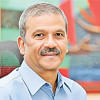‘Stay in power as long as it takes for reforms’

A survey on 2,363 people has found that 81 percent want the interim government to stay until the reforms are done.
In interviews conducted over the phone from August 22 to September 2, at least 47 percent respondents said the interim government's tenure should be two years or more while 35 percent said it should be one year or less.
Just 13 percent said the government should hold an election immediately and transfer power, according to the study by BRAC Institute of Governance and Development (BIGD).

Findings of the "pulse survey" were presented yesterday at the Muzaffar Ahmed Chowdhury Auditorium of Dhaka University on the occasion of the International Day of Democracy.
The respondents are from all 64 districts; 43 percent of them were women; 67 were from rural areas and 33 percent from urban areas.
When it comes to politics, 71 percent of the respondents said that the country is on the right track.
The BIGD also did a similar survey last year and found 41 percent were of the opinion that the country was on the right course.
Mirza M Hasan, senior research fellow at the BIGD, presented the findings.
Mamun Abdullah Hil, a member of Jatiya Nagorik Committee, said people's expectations and opinions change.
"If we fail to translate the reform proposals into actions, then people's trust would erode," he said.
Of the respondents, 40 percent identified economic issues as the main challenges facing the country, 13 percent political unrest and intolerance, and seven percent deterioration of law and order.
Sixty percent of the participants said Bangladesh's economy was in the right direction, up from last year's 32 percent.
Regarding this, Bhuiyan Asaduzzaman, member of the liaison committee of Students Against Discrimination, said, "We need to work continuously to resolve the economic crises, and our first priority should be to stabilise the market."
According to the survey, 72.2 percent respondents said compared to other times, the rate of crimes has not increased in August; 25 percent said crime increased; 75 percent said violence did not increase in August; while 23 percent said it did.
Dhaka University's sociology teacher Samina Luthfa said the findings regarding crimes could either mean crimes had not increased or the respondents did not view certain acts as unlawful crimes.
Regarding educational institutions, around 80 percent said partisan student politics should be banned and 84 percent said partisan teachers' politics should be banned.
Badiul Alam Majumdar, head of the Election System Reform Commission, said that the Election Commission must be non-partisan.
As per the 2022 election commission law, the government can make anyone an election commissioner.
The reform commission has not been officially formed yet and the process of appointing the election commissioner should be done through a search committee which "may include the prime minister and representatives of the opposition parties, civil society, youth, and women."
Samina Luthfa added the students against discrimination talk about building an inclusive Bangladesh by eliminating discrimination. But it is not clear to the people what their definitions of discrimination and inclusive Bangladesh are.

 For all latest news, follow The Daily Star's Google News channel.
For all latest news, follow The Daily Star's Google News channel. 








Comments